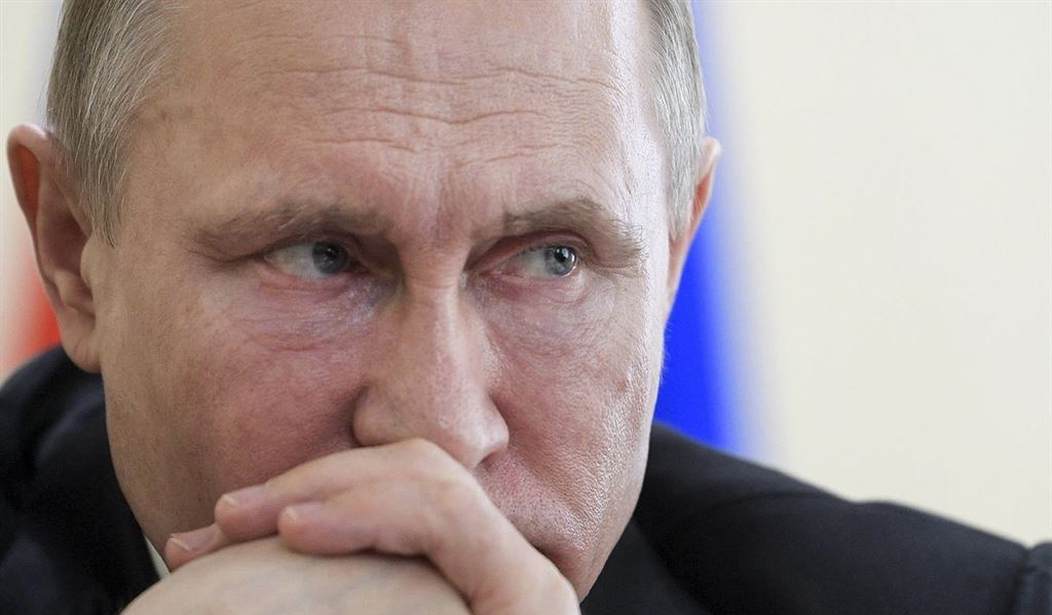Admittedly my headline sounds a bit like the punchline for an R-rated joke, but it’s actually part of an analogy made by a Russian economist with ties to jailed opposition leader Aleksei Navalny.
Vladimir Milov, a Russian opposition politician who favors strong sanctions against Russia to stop the war in Ukraine, asked me this week to imagine I’m in the Amazon rainforest when a giant anaconda coils itself around me. What I should do, he said, is try to strangle the anaconda before it strangles me. “You don’t stop every five minutes and release your grip to see if it’s working. You just do it until the job is done.”
Likewise, Milov told me, the United States, the European Union and other allies should squeeze Russia with economic sanctions for as long as it takes to stop the Russian war machine in Ukraine.
The bad news is that complete success may take a very long time, Milov said. The good news is that the sanctions have already begun to squeeze.
The west has been trying to strangle the Russian anaconda for most of this year but Russia has been strangling back, cutting off oil and gas supplies to Europe in the months leading up to winter, even flaring off millions worth of gas per day rather than delivering it. The result was that for most of the year it wasn’t clear who was suffering more. This summer, European cities were cutting the lights and turning down thermostats. Meanwhile, the Russian ruble, which took a big dip in reaction to sanctions after the invasion, appeared to rebound and stabilize.
Now at the end of the year the situation looks a bit different. Germany managed to fill its storage tanks and even briefly had an oversupply of gas thanks to the onset of cold weather being milder than expected. And that good luck seems to have continued and should keep going into January:
Mild weather and high winds will ease pressure on western European power grids into the New Year, with warmer temperatures even spreading to the Nordics…
The unseasonably warm weather is expected to remain in place through the first week of January. That will reduce the strain on Europe’s energy systems, which were stressed in early December by the first cold snap of winter.
As a result of all of this very timely good news, the price of natural gas has been falling at a time when everyone predicted it would be sky high. In short, Russia’s efforts to strangle Europe appear to be failing.
Meanwhile, western attempts to strangle Russia’s economy appear to be biting with the recent introduction of an oil price cap.
Russian Finance Minister Anton Siluanov reportedly told journalists Tuesday that an oil price cap imposed by the G-7 (Group of Seven) major economies, as well as the European Union and Australia, is squeezing Russian export income and will potentially push Moscow’s budget deficit higher than the expected 2% next year…
“It’s still too early to fully assess the impact of the G7 oil price cap and the EU’s ban on Russian crude imports which came into effect on 5th December, but initial signs suggest that Russia’s economy is starting to feel the pinch,” said Nicholas Farr, emerging Europe economist at Capital Economics…
Meanwhile, the Russian ruble fell by almost 10% against the dollar last week, making it by far the worst-performing EM currency after defying expectations for much of the year.
All sorts of experts, not just the ones connected to the Russian opposition, see economic trouble for Russia in the near future.
Mikhail Zadornov, who was minister of finance from 1997 to 1999, recently gave an interview to RosBusinessConsulting in which he predicted a 10 percent decline next year in the volume of oil production, which “will significantly affect both the budget and the economy.” Restrictions on what Russia can import are also pinching, he said. “It is clear that many enterprises were moving by inertia on stocks of materials and equipment. Now these stocks have run out or are running out. There are no new deliveries.”
Zadornov added, “Our television says with sarcastic joy that the Europeans are freezing. I do not quite understand what is there to rejoice. In fact, we are losing the markets that we have been building since the days of the Soviet Union.”
Indeed, what Russia has done is destroy it’s own credibility and effectively end the global oil market. One Berkeley economist predicted Russia’s future might look more like North Korea:
…underneath the Putin’s defiant show of resilience, signs are building that Russia is set to pay a steep price for isolation in the long-run, according to Yuriy Gorodnichenko, a UC Berkeley economist.
“What they propose to do is a recipe for long-term stagnation,” Gorodnichenko told Insider, pointing to other isolated nations with the world’s weakest economies, specifically North Korea, Afghanistan, and Cuba…
Last year, oil and gas sales made up 45% of Russia’s GDP, according to the International Energy Agency. However, boosting and maintaining energy production in the long-run hinges on being able to purchase the machinery and the technology required to power the industry, much of which is produced in the west.
“Many of the oil field exploratory kits and machines are extremely high-tech. We’re talking about GPS systems and robots that are controlling things deep underground. It’s not just a bunch of guys with a big pipe and a bunch of sledgehammers,” Zagorsky said.
So Russia is heading into trouble and has no way to import the technology it needs to keep productio of its main export going. It may take a while longer but the anaconda is going to have to let go if it wants to survive.









Join the conversation as a VIP Member